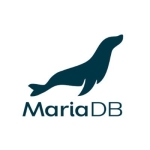What is our primary use case?
The solution is primarily used for support servicing. The whole IT infrastructure uses Oracle. Oracle is a focal point. It's transactional processing as well as data warehousing.
What is most valuable?
The solution's most valuable aspect is its reliability. It just works. You never have to worry about it.
I've worked with the solution so well, I have a very strong understanding of it as a whole. I know everything about it. I'm very comfortable with it.
The solution can scale well.
The stability of the product is excellent.
What needs improvement?
Installing, configuring, and supporting an Oracle RAC system is a very complex task that requires special skills. A novice who has never done it before will struggle. Therefore, I think that in the future all Oracle RDBMS customers will gradually switch to cloud databases, preferably, to Oracle cloud.
It takes a significant amount of time after submitting an initial SR with Oracle Tech Support before your case reaches a technical expert with whom you can actually work on the issue resolution. Before that, you have to deal with people who are not experts.
Oracle RDBMS is expensive.
For how long have I used the solution?
I've been working with Oracle since 1994. I have a long history with the solution.
What do I think about the stability of the solution?
The stability of the solution is excellent. The performance and reliability are great. There are no bugs or glitches. It doesn't crash or freeze. It's very good overall.
What do I think about the scalability of the solution?
Oracle is very, very scalable. If a company needs to expand the solution, it can do so.
Our organization is quite large. There are hundreds of IT personnel using Oracle.
How are customer service and technical support?
I've dealt with technical support in the past and I personally do not find them to be very good.
Usually, it starts very slowly. Before you get to the right people, you go through the people who hardly understand the problem and they keep asking stupid questions. Then only after a couple of weeks, you finally get in touch with the person who really understands. It's at that moment that your work starts. However, before that, you have to go through the process of finding someone to answer your question.
They need to make the process faster or hire people who understand the solution better.
Which solution did I use previously and why did I switch?
Currently, our organization is moving away from Oracle. They're moving to Amazon AWS and they're considering several databases, as a potential alternative. This is due to the fact that Oracle is very expensive.
In truth, I'm not sure the company will ever be able to get rid of Oracle, as it would require rewriting everything. Currently, Oracle is the basis for everything. Just to switch to something else, they would have to rewrite everything. It will be a huge undertaking, and it would take several years.
How was the initial setup?
The initial setup is not exactly straightforward. Real-life Oracle installation is very complex and a regular non-proficient person can hardly do that. I am not an Oracle DBA, however, many years ago I was an Oracle DBA. I don't have the certification. However, when I tried to install Oracle on a cluster of Linux machines to do some cleaning, it took me several weeks. I had to go through Oracle documentation, and I was trying and failing. Finally, I made it work, however, it was really difficult. Even for me, with so much knowledge of the system, Oracle installation is really difficult. Years from now, likely nobody will be doing it at all. Everybody will be using Oracle cloud instead.
We have quite a few people maintaining the solution, as we are a sizable organization.
What about the implementation team?
It's best to have a professionally licensed individual assist in the implementation process.
What's my experience with pricing, setup cost, and licensing?
The pricing is extremely high. It's one of the reasons our organization is looking for an alternative. They would like to move away from Oracle to lower their costs.
What other advice do I have?
I'm a customer and end-user.
I would advise organizations considering Oracle to not do on-premises. The best way, nowadays, is just to pay money to Oracle and use Oracle-managed databases from the cloud. They don't require a data center for the hardware. Cloud computing, is what people should do instead.
I'd rate the solution at a ten out of ten. That said, I am aware that it is quite an expensive option for most organizations. Even our company, which is quite sizeable, finds the overhead costs high.
Disclosure: My company does not have a business relationship with this vendor other than being a customer.
















